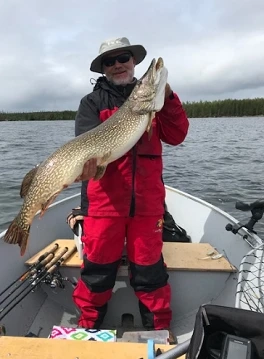Canada fishing trips, a beloved pastime for many, significantly impact the environment in various ways. While these excursions provide substantial economic benefits and recreational enjoyment, their environmental footprint cannot be overlooked. Understanding these impacts is crucial for ensuring the sustainability of Canada's rich and diverse aquatic ecosystems.
One of the primary environmental concerns associated with Canada fishing trips is overfishing. Popular destinations such as British Columbia and the Great Lakes see numerous anglers annually, leading to the depletion of certain fish species. This overfishing disrupts the ecological balance, threatening the health of aquatic ecosystems. For instance, the overharvesting of species like Atlantic cod and Pacific salmon has led to significant population declines, causing ripple effects throughout the food chain.
Another significant issue linked to Canada fishing trips is habitat destruction. The influx of tourists and anglers often leads to increased boat traffic, which can damage delicate underwater habitats such as coral reefs and seagrass beds. Moreover, the construction of fishing lodges and other infrastructure can result in the loss of critical shoreline habitats. These activities not only harm the immediate environment but also degrade the quality of the water, affecting the overall health of the ecosystem.
Pollution is another adverse effect of Canada fishing trips. The use of boats contributes to water pollution through fuel spills and the discharge of wastewater. Additionally, improper disposal of fishing gear, such as lines and nets, leads to plastic pollution, which poses a severe threat to marine life. Aquatic animals can become entangled in discarded fishing gear, leading to injury or death. Furthermore, the presence of microplastics from degraded fishing gear adds to the growing problem of plastic pollution in waterways.
However, it's important to note that not all impacts of Canada fishing trips are negative. When managed sustainably, fishing can contribute to conservation efforts. For example, catch-and-release programs help to maintain fish populations while still allowing anglers to enjoy the sport. Additionally, fishing license fees and other related revenues often fund conservation initiatives, such as habitat restoration projects and research on fish populations.
To mitigate the environmental impacts of Canada fishing trips, several measures can be implemented. Promoting sustainable fishing practices, such as catch limits and seasonal restrictions, is essential. Educating anglers about the importance of protecting aquatic habitats and reducing pollution can also make a significant difference. Furthermore, investing in eco-friendly infrastructure and supporting conservation projects are crucial steps towards ensuring that Canada fishing trips can be enjoyed for generations to come without compromising the health of the environment.
In conclusion, while Canada fishing trips offer numerous benefits, their environmental impacts must be carefully managed. By adopting sustainable practices and fostering a culture of conservation, it is possible to enjoy the natural beauty of Canada's waterways while preserving them for future generations.



